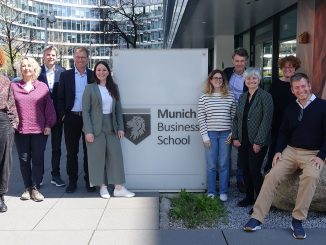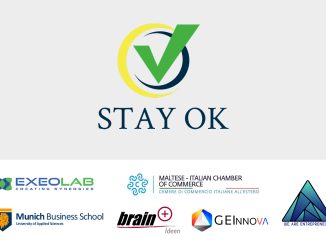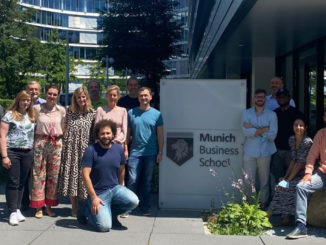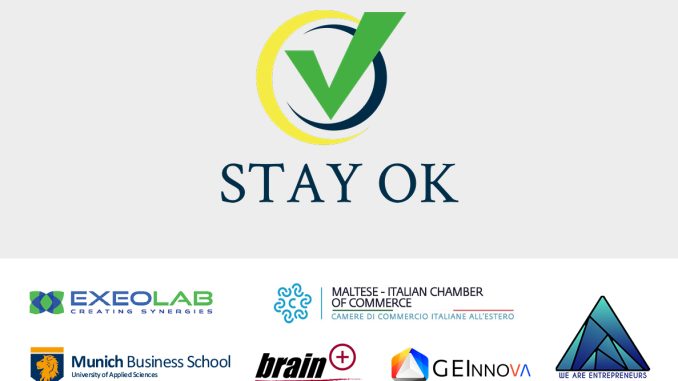
In December 2023, the ERASMUS+ project “STAY OK – Rethinking Wellbeing at Workplaces in the European SMEs” started, in which Munich Business School (MBS) is participating as a partner. The aim of this project is to support managers in small and medium-sized enterprises (SMEs) in formulating and implementing activities to promote well-being at work, thereby increasing their attractiveness in the labor market. A webinar presenting the research results has already taken place in spring 2024. Today, we would like to provide further insights into the implementation of the project.
PROJECT STAY OK- Actual Status
The STAY OK project is in full swing. We have now reached the halfway point of the project and are currently in the phase of developing the training course, which will be completed soon.
The first results of the STAY OK PROJECT have also already been finalized like the report or best practice examples, and we present now officially them in this newsletter. On the project management side, we had the second transnational meeting in Malta, where we specifically discussed the contents of the training course.
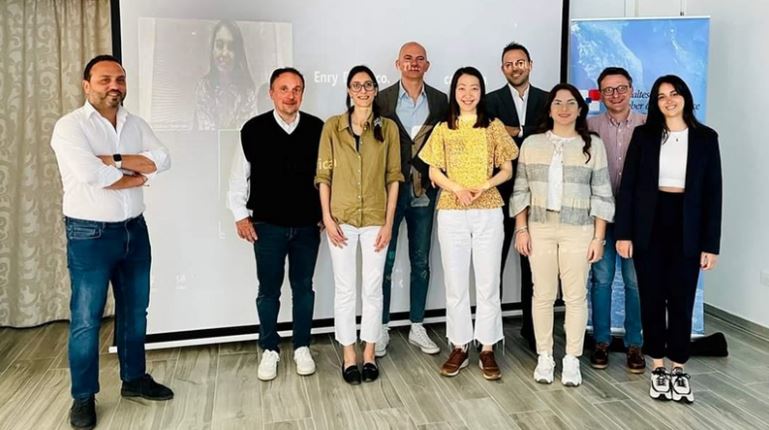
Best Practice Cases
The project STAY OK we elaborated 10 best practice cases concerning our project topic of wellbeing in SMEs. In the newsletter we will present now two of them:
SKYLABS / Italy
The company offers digital strategy in Italy. SKYLABS offers its employees a range of benefits including smart working, flexible hours, continuous training, and certification paths. Moreover, the organization highly regards the active participation of its employees in shaping decisions pertaining to workplace wellbeing. One of the innovative best practices adopted is an internal contest called ‘Call For Benefit’, where over 100 employees share ideas for implementing corporate welfare.

RADIAL / Germany
Radial provides ‘hands on’ support to enable data-driven decisions in Germany. At Radial, employees have access to various initiatives designed to enhance their physical and mental wellbeing. The business owner provides on-demand business coaching to the team to support his employees in navigating their careers effectively. Moreover, employees at Radial enjoy full flexibility in choosing their work environment, whether it is a modern office equipped with ergonomic furniture, home office setups, or mobile work options.

Transnational Research Report
Main Take Aways
The first output was a report on the topic of well-being in SMEs, which was carried out in all participating countries where the partners are coming from.
The data reveals that almost one-third of the managers interviewed already rely on training and coaching as sources of information on workplace wellbeing. This finding holds particular significance, especially considering that the STAY OK project anticipates pilot training. It will be vital to differentiate it from the currently available offerings.
One notable point raised by some of our informants was the perceived lack of practicality in existing training programs.
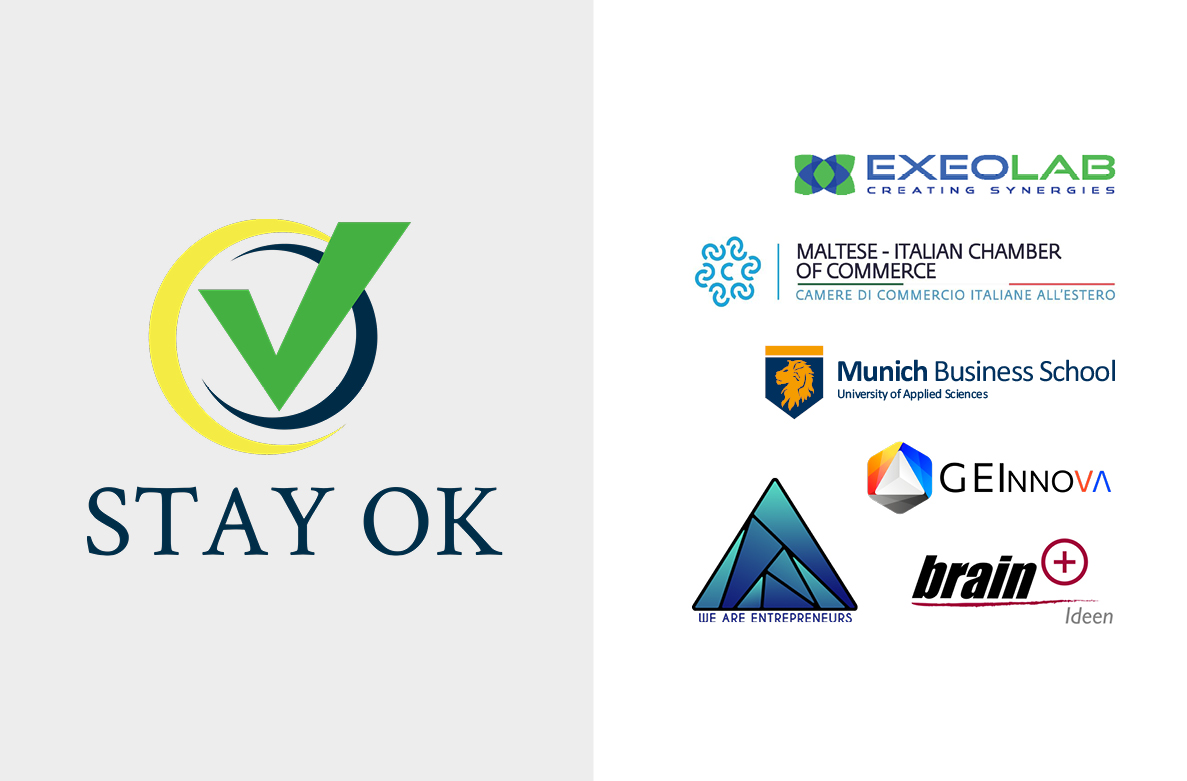
Within the challenges identified, a surprising discovery is that not all micro-enterprises operate under resource-poor conditions, as only a quite small amount of the managers interviewed cited economic constraints. This finding may help explain why the great majority of organizations at the centre of this study have well-being policies and processes in place, despite all being micro-enterprises.
Alternatively, this could be linked to various factors such as national demands regarding workplace regulations, fierce competition for talent within the professional service sector, or even a self-selection bias among managers participating in the study.
Always in the challenges category, psychological barriers stand out but only 6% of managers mention tools specifically focused on mental health. This observation raises questions about whether the implementation of trendy well-being measures and events takes precedence over addressing deeper underlying issues.
Turning to the practices implemented, it is clear that well-being holds significant importance even in micro-enterprises. The fact that 20% of managers employ preemptive strategies and 17% engage in active monitoring and control is an encouraging sign.
However, flexibility, the cornerstone policy, poses a double-edged sword. On one hand, it accommodates organizational demands by offering remote work or flexible hours, yet it also complicates efforts to establish a clearly defined organizational identity and maintain structure within the firm. Additionally, employee strain and shortcomings, such as loneliness resulting from remote work, warrant attention and consideration.

Training Course – The modules
In the project STAY OK, we will develop the following modules:
MODULE 1 – CAREER PLANNING
The module covers the topics of strategic career planning, taking SME leaders through effective needs mapping of the current and future of the company.
MODULE 2 – HYBRID WORK STRATEGIES
The module deals with how to organize remote work effectively from the employers’ and employees’ point of view. Besides infrastructural aspects.
MODULE 3 – ARTIFICIAL INTELLIGENCE FOR WORKER MANAGEMENT
The module focuses on available systems of AI-based worker management (AIWM) for analysis all-round workforce and covers the topics of efficiency/ productivity and decision-making support.
MODULE 4 – ACCESSIBILITY ISSUES AND MENTAL WELL-BEING
The module goes beyond physical barriers and explores the dynamics of well-being as applied to workers with physical or mental disabilities. A special focus will be placed on disabilities which are not formally communicated and on technological barriers.
MODULE 5 – COMMUNITY WELL-BEING
The module helps employers build strategies to enable employees to engage in their community (through paid voluntary work, etc.).
MODULE 6 – LIFE-WORK-BALANCE
Life-Work Balance is a comprehensive module, focused on the intricate relationship between work and personal life for small business owners and solopreneurs. The module emphasizes the importance of integrating work and life harmoniously, rather than aiming for an equal distribution of time between the two.
Further Information on the Project
STAY OK – Rethinking wellbeing at workplaces in the EU SMEs [2023-1-IT01-KA220-VET-000154571]
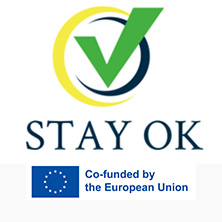
Funded by the European Union. Views and opinions expressed are however those of the author(s) only and do not necessarily reflect those of the European Union or the European Education and Culture Executive Agency (EACEA). Neither the European Union nor EACEA can be held responsible for them.

